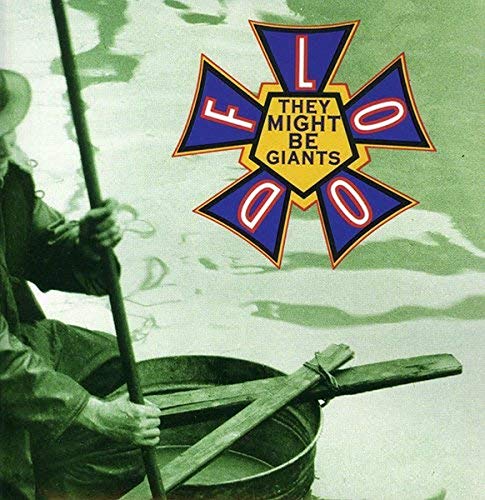Album Review: They Might Be Giants – Flood (#MWE)

The Johns were always oddballs. Out of all the bands my older cousin Joe introduced to me in my most formative years, They Might Be Giants was the weirdest. But unlike another bizarre group in his CD collection, Primus, TMBG weren’t dark or sinister, but rather playful, quirky, slightly nerdy… ok, they were very nerdy. And the Brooklyn duo, consisting of Johns Linnel and Flansburgh, were also kid-friendly, which led to placement on Tiny Toon Adventures, and, eventually, children’s albums from TMBG themselves.
Flood is, by a long shot, their most successful and recognized album, though the jury’s out on whether it’s their best. They Might Be Giants albums are a bit of a mess. A fun mess, sure, and always an adventurous, diverse listen, but a mess nevertheless. Flood is no different, featuring dalliances with country and Western music, polka, and and oldies-era rock’n’roll.
There’s plenty of quirky arrangement here, as well. Lead single “Birdhouse In Your Soul” has a trumpet solo, and, thanks to the marvel of MIDI sequencing, injects a rather off-kilter key change. The song is told from the perspective of a night light, which, yeah, sounds about right. They Might Be Giants are perhaps best known for their novel, strange lyrics and imagery, which never quite enter the realm of straight-up comedy or satire.
“Lucky Ball and Chain” is a fairly straightforward heartbreak song, though the Western pastiche renders it a bit too tongue-in-cheek. The duo’s cover of “Istanbul (Not Constantinople)” is likely their best known song, and for good reason; it’s an unbelievably fun baroque pop rendition held together by violin and a good sense of humor in vocal delivery. “Dead” follows, a strangely beautiful and sentimental piano tune about being reincarnated as a bag of groceries.
Only on a TMBG song can clever political commentary, accordion, drum machines, and sudden shifts in genre all combine for a completely enjoyable track, as on “Your Racist Friend.” Fan favorite “Particle Man,” meanwhile, is guided along by an oom-pah cadence and an abstract tale of a group of men (all with peculiar descriptors) who are fighting with each other. “Twisting” borrows a lot from an old school rock’n’roll template, enough that, were it not so… uh, They Might Be Giants-y, it might have been destined for PA systems at baseball games.
Once they get into the swing of things, the duo begins repeating themselves, rendering Flood with a good chunk of filler. The biggest and best moments on the album are the songs we all remember, and the rest come off as a bit corny. This was They Might Be Giants’ first time in a proper recording studio, so the story goes, and the sessions were utilized for a bit of studio experimentation with sampling and vocal effects. Near the middle section of the album, this focus produces some flat-out melodic duds, like the disaster “Hearing Aid” and the eyeroll-inducing interlude “Minimum Wage.” When the Johns focus on building innovating left-field pop melody, as on “Letterbox” and “Whistling In the Dark,” the album truly shines.
Even though it’s their most commercially successful album, Flood has many moments that could have been left on the cutting room floor. At times, the songs feel too undercooked, and at other times downright off-putting. This has been a typical flaw for many They Might Be Giants releases, however, and when the duo gets going here, they deliver some of their career-defining material.
Score: 6/10